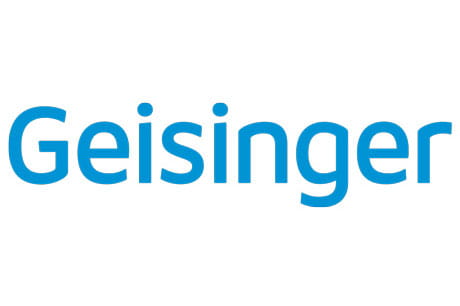Geisinger uses machine learning to speed up diagnosis of potentially fatal internal head bleeding
Time to diagnosis of intracranial hemorrhages reduced by 96 percent
By using this innovative approach, Geisinger specialists have reduced the time to diagnosis of intracranial hemorrhages by 96 percent.
This form of internal head bleeding affects approximately 50,000 patients per year in the United States, with 47 percent of patients dying within 30 days. Early and accurate diagnosis is critical for these patients.
Machine learning – using computers to detect patterns in data -- has been so successful, it is now being introduced into the regular clinical workflow at Geisinger.
“This is not about replacing doctors with machines,” said Aalpen Patel, M.D., chair, Geisinger System Radiology. “This is about the smart use of machine learning technology to aid medical providers in delivering better and faster care, especially in these areas where time is critical.”
As an early adopter of the electronic health record, Geisinger has been able to combine radiographic and other medical imaging data that allows specialists to train computers to accurately pinpoint the worst cases. This flags the most urgent images for priority review by radiologists, leading to earlier diagnosis and life-saving emergency interventions.
In a recent case, an 88-year-old woman presenting with symptoms thought to be related to her medication was rushed to the emergency department after the machine algorithm flagged her CT scan for urgent attention. As it turns out, she was actually suffering from an intracranial hemorrhage which was safely resolved by medical intervention.
“The use of intelligent computer assistance is imperative in order to sustain and improve medical care,” said Brandon K. Fornwalt, M.D., Ph.D., associate professor and director, Geisinger Department of Imaging Science & Innovation.
“Geisinger is proud to be at the forefront of clinical applications of these technologies,” said Fornwalt, who is applying machine learning in other areas, including patients with congenital heart disease.
About Geisinger
Geisinger is among the nation’s leading providers of value-based care, serving 1.2 million people in urban and rural communities across Pennsylvania. Founded in 1915 by philanthropist Abigail Geisinger, the non-profit system generates $10 billion in annual revenues across 134 care sites - including 10 hospital campuses, and Geisinger Health Plan, with 600,000 members in commercial and government plans. The Geisinger College of Health Sciences educates more than 5,000 medical professionals annually and conducts more than 1,400 clinical research studies. With 26,000 employees, including 1,600 employed physicians, Geisinger is among Pennsylvania’s largest employers with an estimated economic impact of $14 billion to the state’s economy. On March 31, 2024, Geisinger became the first member of Risant Health, a new nonprofit charitable organization created to expand and accelerate value-based care across the country. Learn more at geisinger.org or connect with us on Facebook, Instagram, LinkedIn and X.

